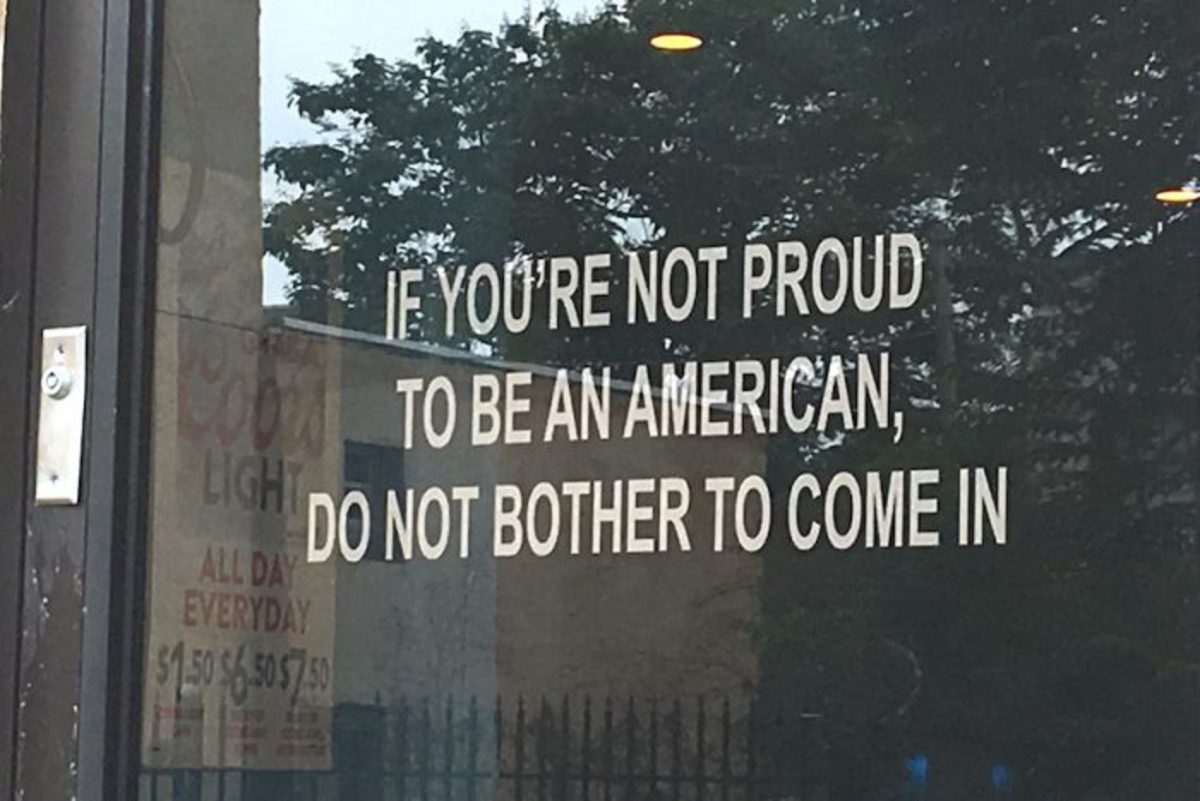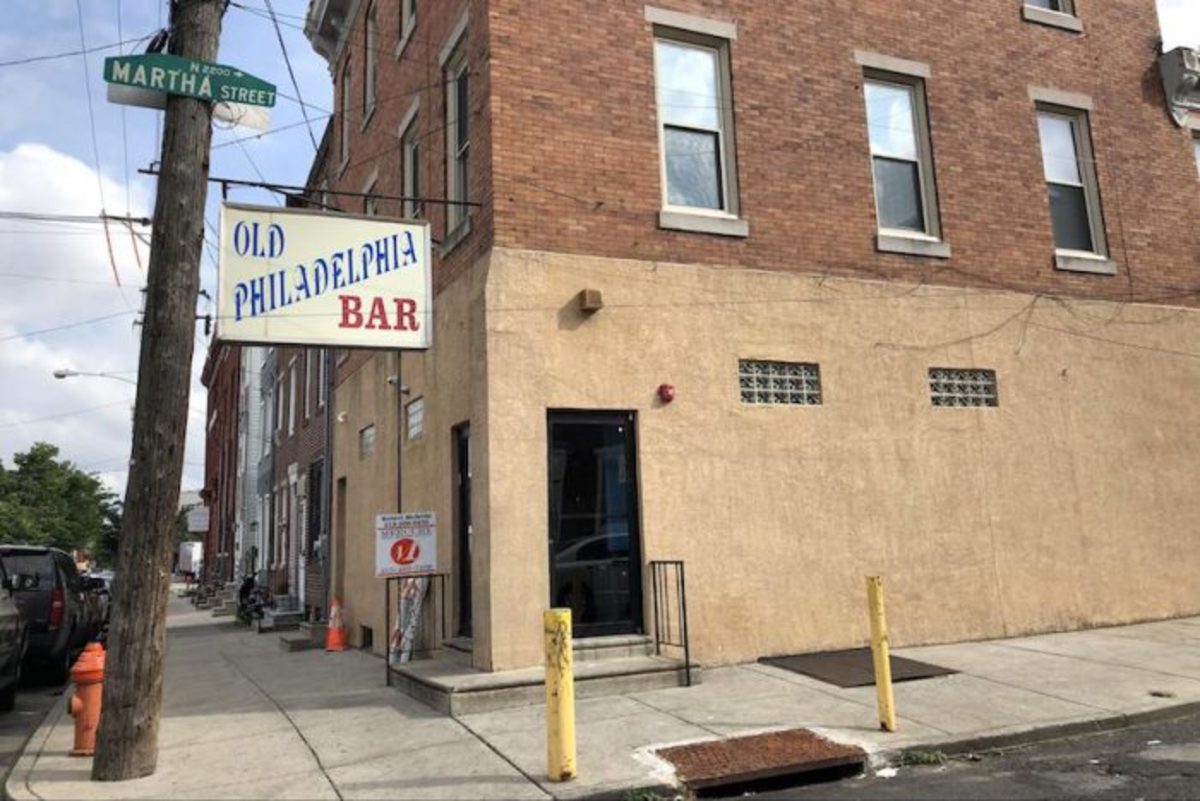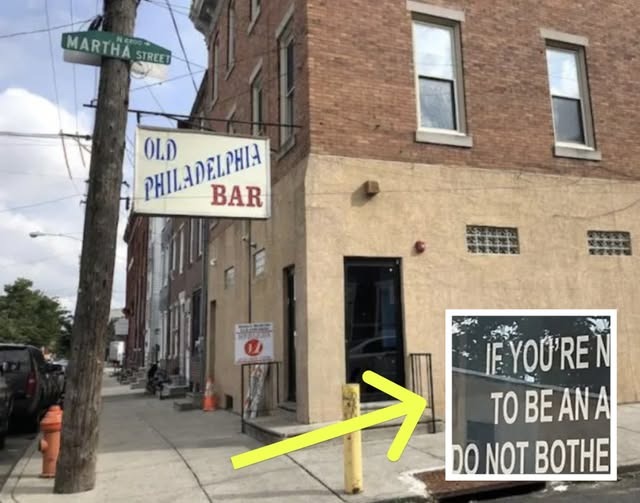A recent incident at the Old Philadelphia Bar has ignited a heated debate about patriotism and inclusivity. The bar, a staple in its neighborhood for decades, has added a new sign to its front door that reads, “If you’re not proud to be an American, do not bother to come in.” The sign has sparked outrage among locals, with many feeling that it promotes exclusivity and discriminates against those who don’t share the same views.
Despite the controversy, the bar’s manager claims that the sign has actually increased business. The bar prides itself on its patriotic atmosphere, with patrons singing along to “God Bless the USA” and enjoying cheap beers. The establishment has also become known for its anti-hipster stance, with one Google review praising the bar for not being overrun with “hipster douchebags.”

However, not everyone is a fan of the bar’s new sign. Some locals, particularly those from diverse backgrounds, feel unwelcome and intimidated by the bar’s message. A woman from Fairmount expressed her reluctance to visit the bar due to her Indian boyfriend, stating that the sign makes it clear that certain individuals are not welcome.


The bar’s manager seems unfazed by the criticism, stating that if you’re in the country, you should be proud to be an American. But the question remains: what does it mean to be patriotic, and can it be done in a way that includes everyone? The debate surrounding the Old Philadelphia Bar’s sign is a complex one, highlighting the tension between national pride and inclusivity ¹.


